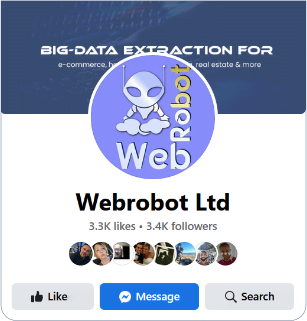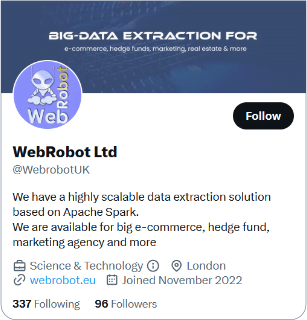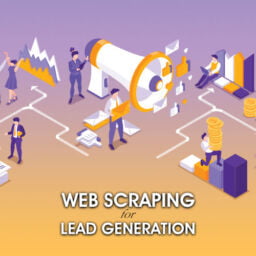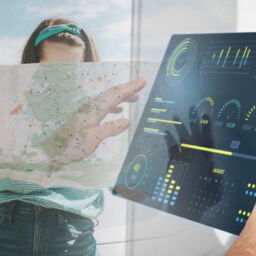
The travel industry faces several significant challenges when handling and utilising travel data. In this article, you will discover how technology can help you solve travel data issues.
Travel Data Challenges
Ensuring the quality and consistency of travel data is crucial. The industry relies on data from various sources, including airlines, hotels, OTAs, and review platforms. However, such data may be incomplete, inaccurate, or inconsistent, making it challenging to derive meaningful insights or make informed decisions based on the information you gathered.
Furthermore, travel data is often fragmented across multiple platforms and systems. Hence, it is hard to consolidate and integrate it. For example, gathering data from various sources, such as airlines, hotels, car rentals, and activities, poses difficulties due to different data formats, APIs, and integration requirements.
In addition to fragmentation, we must consider the travel data’s highly dynamic and time-sensitive nature. When you want to keep up with instant data updates (flight schedules, hotel availability or pricing changes), the collected information must be timely and accurate. Furthermore, for effective travel planning and booking, you need access to real-time data that can provide timely updates to your customers.
Finally, travel data encompasses diverse information, including booking patterns, customer behaviour, market trends, and competitive analysis. Advanced analytics techniques, such as data mining, Machine Learning (ML), and predictive modelling, can help you extract meaningful insights from data to enhance your business strategies and improve customer experiences.
You can address these challenges by combining technological solutions, data governance frameworks, industry collaboration, and adherence to privacy regulations. One of these solutions is travel data scraping, which offers several advantages for many businesses.
What’s Travel Data Scraping
Travel data scraping automatically extracts information and data from various online travel sources. You can use scrapers or web crawlers (software tools) to visit websites, navigate through the pages, and collect specific data points.
Travel data scraping allows you to gather information such as hotel availability and pricing, flight schedules and fares, reviews and ratings, destination information, weather forecasts, travel advisories, transportation, and more. You can extract data from different websites, including travel agencies, hotel booking platforms, airline websites, review sites, social media platforms, etc.
Travel Data Scraping Techniques and Use Cases
Travel data scrapers use various techniques to extract data, including web scraping, API calls, and data mining. Web scraping parses and extracts specific HTML elements or structured data from web pages. API calls can access data from websites that provide Application Programming Interfaces designed to retrieve data. Data mining techniques analyse and extract insights from large data sets to identify patterns and trends.
The collected travel data is a strategic asset for any business operating in the hospitality and tourism industry. It allows market trends monitoring, competitor analysis, pricing strategy optimisation, inventory management, customer experience improvement, marketing campaign enhancement, and data-driven decision-making to stay competitive in the travel industry.
In our next article, we will dig into each of these travel data scraping applications. So, keep reading, stay tuned, and subscribe to our newsletter to keep posted.
Travel Data Scraper Benefits
Travel data scrapers provide numerous benefits in the hospitality and tourism industry. Leveraging web scraping for travel applications helps you gain at least ten key advantages.
Competitive Analysis
Travel data scrapers can gather information about competitors’ pricing, availability, and promotions. This data allows your business to monitor and analyse the market, adjust its strategies, and stay competitive.
Price Monitoring
Scrapers can collect pricing data from various travel websites to track price fluctuations. This information helps your tourism business (hotel, airline, restaurant, etc.) optimise its pricing strategies and offer competitive rates (but keep ethical and avoid illegitimate uses—we’ll talk about that next week.
Demand Analysis
Scraping travel data from multiple sources, including booking platforms and review websites, allow you to gain insights into customer preferences, popular destinations, and emerging travel trends. This data assists in making informed decisions about marketing campaigns, product offerings, and service improvements.
Rate Parity Compliance
Many online travel agencies (OTAs) require rate parity, which means hotels must offer the same rates across all platforms. Travel data scrapers can monitor multiple websites and ensure rate parity compliance, preventing any potential issues or discrepancies.
Reviews and Reputation Management
Travel data scrapers can extract customer opinions and ratings from various review platforms. Through this information, you can assess your company’s reputation, understand what to improve, and respond to customer feedback promptly.
Inventory Management
Scrapers can track room availability, flight schedules, and other inventory-related data in real-time. This is very helpful to manage your inventory effectively, avoid overbooking or underutilisation, and make better decisions about capacity planning.
Marketing Insights
Travel data scraping from social media platforms and online forums can get insights about customer sentiment, popular destinations, travel experiences, and influencers. Such information supports you in developing targeted marketing campaigns and engaging with your target audience more effectively.
Personalised Offerings
Travel data scrapers enable data gathering on customer preferences, travel patterns, and previous bookings. This information is fundamental to creating personalised offers and enhancing and recommending tailored experiences.
Risk Assessment
Assessing and managing travel-related risks is one of the top priorities for a travel business. You can proactively address potential issues and ensure the safety and well-being of your customers by collecting data on travel advisories, safety alerts, and weather conditions.
Efficiency and Time Savings
Manual data collection from various sources is time-consuming and error-prone. Travel data scrapers automate this process, saving your team valuable time and resources. It allows you to focus on analysing and utilising the data instead of spending time on data collection.
Overall, travel data scrapers provide valuable insights, improve decision-making processes, enhance customer experiences, and increase operational efficiency in the hospitality and tourism industry.
Travel Web Scraping End-users
Travel web scraping has various end-users within the hospitality and tourism industry. If you work in one or more of the following business sectors, you should keep reading to discover what travel data scraping can do for your success.

Hotels and Accommodation Providers
As a hotel owner or manager, you can use travel web scraping to monitor competitor pricing, track availability, and analyse customer reviews. This helps your marketing team optimise your pricing strategies, adjust room rates, and enhance your offerings based on market trends and customer preferences.
Airlines and Travel Agencies
If you manage an airline and travel agency, travel web scraping can help you gather data on flight schedules, fares, and availability. Thanks to this data, you to offer competitive pricing, analyse route performance, and optimise flight inventory management.
Online Travel Agencies (OTA)
Your OTA needs travel web scraping to aggregate and compare prices, availability, and reviews from multiple sources. It allows you to provide comprehensive and up-to-date information to your customers. This lets them make informed decisions while booking flights, hotels, and other travel services.
Tour Operators
As a tour or travel manager, you can use web scraping tools or hire a data scraping service provider to gather data on popular destinations, attractions, and travel packages. This helps you curate and customise tour packages, provide accurate information to customers, and stay updated on market trends.
Destination Management Organisations (DMO)
Web scraping can be a valuable tool to help a DMO monitor and analyse data related to visitor trends, accommodations, attractions, and events. This information helps understand visitor preferences, identify emerging trends, and develop targeted marketing strategies to promote the destinations.
Travel Meta-search Engines
Travel meta-search engines aggregate data from various travel websites and present it to users in an easy-to-read fashion. These platforms heavily rely on travel web scraping to collect data on prices, availability, and reviews from multiple sources. This is vital to let your users compare and book travel services efficiently. Without that, your travel meta-search engine would lose its ‘raison d’être’.
Market Research Firms
Your market research company can exploit travel web scraping to gather data on customer behaviour, travel trends, and competitor analysis. This data helps your analysts generate industry insights, forecast market demand, and provide valuable research reports to industry stakeholders.
Travel Technology Providers
Working in this field means developing travel management systems, booking engines, and analytics platforms. All these technology solutions need travel web scraping to source data necessary for their applications. Web scraping offers accurate and real-time information while enhancing your software functionalities.
Data collected through web scraping empowers these stakeholders to make informed decisions, enhance their offerings, improve operational efficiency, and stay competitive in the dynamic travel market. But how can you do that in practice?
Travel Data Extraction Methods and Challenges
Travel data extraction methods involve various techniques for collecting information from multiple sources within the travel industry. These methods include web scraping, API integration, data feeds and partnerships, and manual data entry. Each method has its advantages and challenges, and the choice of method depends on multiple factors, such as data availability, data quality, legal considerations, and technical capabilities.
Travel Data Extraction Methods
Web scraping is a commonly used method for travel data extraction. Automated tools or services can extract relevant data from websites, booking platforms, review sites, and other online sources. It offers the advantage of collecting large volumes of data efficiently.
API integration allows direct access to data through authorised APIs provided by airlines, hotels, or other travel service providers. This method ensures real-time data retrieval and structured information.
Through data feeds and partnerships, you collaborate with third-party providers who offer pre-packaged travel data or data exchange agreements.
Finally, the time-consuming manual data entry can be used when data is unavailable through other automated methods, such as gathering information from physical brochures or pamphlets (unless you use text recognition and transcription software, but this is another story we will tell soon).
Travel Data Scraping Challenges
Travel data extraction also presents several challenges. Firstly, data availability and consistency can vary across different sources. This requires careful selection and validation of data to ensure accuracy.
Websites and platforms may have different structures and formats, making web scraping complex and requiring ongoing maintenance to adapt to changes. Therefore, in choosing your travel data scraping service or app, ensure it can handle this effectively.
Additionally, managing large volumes of data, data quality control, and data integration from various sources can pose technical challenges.
Finally, you must also evaluate the legal implications, such as adhering to terms of service, copyright restrictions, and data privacy laws. This is essential to ensure ethical and legal data extraction practices. Furthermore, data extraction may be limited by access restrictions or limitations imposed by websites or APIs, requiring careful compliance with usage policies.
In summary, there are diverse approaches to gathering information. Each travel data extraction method presents its own set of challenges. So, you must select the most suitable travel data collection technique based on data requirements, legal considerations, technical capabilities, and the specific issues associated with each method.
Your Next Step
By addressing these challenges effectively, your business and analysts can unlock valuable insights to improve decision-making and enhance customer travel experience.
We can take care of the whole travel data scraping process. Ask for a free consultation and receive beta access to our upcoming no-code and low-code visual tool and browser extension for Chrome and Firefox.
Book a free consultation with data experts
Create travel data scrapers like magic
Do it yourself with a self-service no-code app.
Disclaimer: Always respect user privacy and copyright, follow ethical data scraping practices, and abide by the terms and conditions of the websites or platforms you’re scraping data from, as unauthorized data extraction may lead to legal or privacy issues. Therefore, ensure that your data collection and analysis methods are compliant. Furthermore, data can be noisy, unstructured, and constantly changing. Therefore, use a tool or service that can handle the volume and variety of data from multiple web sources. This article is for information purposes only and not intended as legal advice. Consult a lawyer for complete knowledge of the local and international laws.
Featured image by graystudiopro1 on Freepik




















[…] travel data scraper for transportation carriers allows businesses, travellers, or travel agencies to gather […]
[…] business management and sales and reduce delay, congestion, and air pollution. Getting instant information in the travel industry can support you in offering better travel solutions, improving customer experience, and defining […]
[…] uses data science, statistics, machine learning, and visualisation techniques to transform raw travel data into actionable […]
[…] in the travel industry is high. But you can use web scraping to collect all the valuable travel data about attractions, accommodations, dining options, transportation services, and local tips. With […]